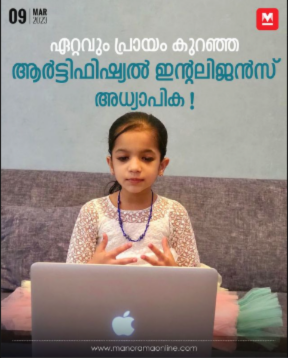Muhammed Ameen ,Higher Grade ,#Future School started his company Abccoders at age 10
Our Methodologies

Self Directed
Humans are natural learners. When children get to follow their passions, they engage deeply, learning more quickly and thoroughly – covering years of content in weeks at the time they choose to learn it.
Self-directed learning is the process of taking charge of one's own learning experience, rather than relying on formal instruction or guidance from others. It is a highly personalized approach to learning that allows individuals to pursue their own interests and goals, at their own pace and on their own terms. Self-directed learners are motivated by a desire to learn, and they are skilled at identifying their own learning needs, setting goals, and seeking out resources and opportunities to support their learning. This approach to learning can be highly effective, as it allows individuals to focus on areas of interest and build knowledge and skills in a way that is meaningful to them. Moreover, self-directed learning can lead to greater self-confidence, independence, and personal growth. It is an important skill for success in both personal and professional settings, as it allows individuals to adapt to changing circumstances and stay relevant in a rapidly changing world.

Learning Culture
At #FUTURE SCHOOL children feel they are heard, they belong, and they make a difference. We follow methodologies which builds confidence, heightens communication skills and bring out the best in them.
A student-centered learning culture is an educational approach that places the needs and interests of students at the center of the learning experience. It involves creating a supportive and engaging environment that encourages active participation, collaboration, and exploration. In a student-centered learning culture, teachers act as facilitators, providing guidance and support while allowing students to take charge of their own learning. This approach recognizes that students learn best when they are motivated, engaged, and invested in the learning process. By focusing on the needs and interests of students, a student-centered learning culture can help to foster a sense of ownership and responsibility for learning, leading to greater retention of knowledge and skills. It can also help to develop important skills such as critical thinking, problem-solving, and collaboration, which are valuable in both personal and professional settings. Ultimately, a student-centered learning culture can help to create a more equitable and inclusive learning environment that supports the success and well-being of all students.

Effective Tools
We use practical and concrete tools to make these lofty-sounding ideals real and reliable. These tools and practices provide visible feedback, effective self-management, clarity of purpose, and easy integration of new patterns as needs change.
Using new age tools for education can revolutionize the learning experience by providing students with innovative and engaging ways to access information, collaborate with others, and apply their knowledge. New age tools include a wide range of technologies such as interactive whiteboards, educational apps, virtual and augmented reality tools, and online learning platforms. These tools can help to personalize the learning experience, providing students with opportunities to learn at their own pace and according to their own interests and learning style. They can also promote active participation, collaboration, and creativity, which are essential skills for success in today's rapidly changing world. Moreover, new age tools can help to break down barriers to education, providing access to quality educational resources to students from all backgrounds and locations. By using new age tools for education, educators can create dynamic and engaging learning environments that foster curiosity, critical thinking, and a lifelong love of learning.
